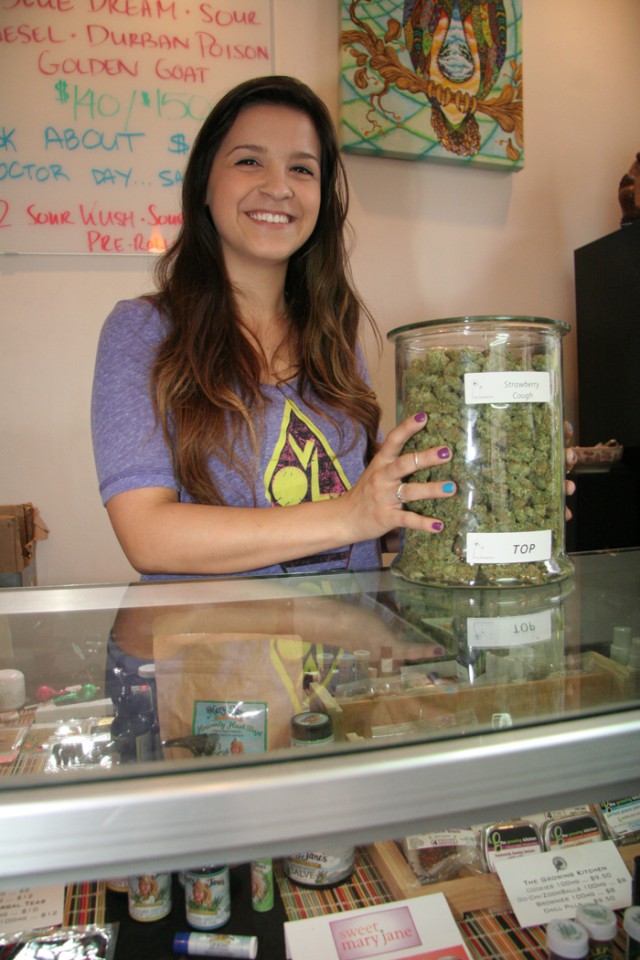
Last week Colorado became the first U.S. state to adopt a set of rules that allows marijuana to be regulated like alcohol for adults. Legislators, task force members and all involved are to be congratulated for doing it in accordance with Amendment 64’s spirit and under its tight, six-month deadline.
It was obvious during the session that some legislators wanted to derail the process and were openly hostile to instituting the amendment at all, and it took some last-minute arm-twisting and horse-trading to get it done. If a good bill is one that doesn’t completely satisfy anybody, then these could be considered successes.
HB 1317 and HB 1318 provide a framework for the cultivation, product manufacturing and sale of marijuana. HB 1318 sets up a special 10 percent state sales tax on retail sales (not counting already existing state taxes and local sales taxes) and a 15 percent excise tax on wholesale sales of non-medical marijuana.
The Department of Revenue is now tasked with writing the tax proposals that will go to voters this November. Providing they pass, stores could be open by New Year’s Day 2014. Gov. Hickenlooper, a former pot smoker whose office campaigned against legalization, has already thrown his support behind the tax proposals, and early polls show voter support for the taxes.
Easily the goofiest regulation is that marijuana periodicals can’t be on the shelves with other magazines, an amendment added late in the process by Rep. Bob Gardner, who cited keeping pot periodicals away from teenagers and argued that magazines are commercial speech with advertising that can be regulated. Denver lawyer David Lane and High Times magazine have already announced intentions to challenge this one on First Amendment grounds. I’m sure they won’t be the only ones.
Those who were hoping to cash in by operating private coffee/cannabis bars or coffee shops were stopped cold in their tracks — the new laws ban all of them. Most disappointed is perhaps the city of Nederland, whose mayor, Joe Gierlach, had convened a task force earlier this year to look into the city branding itself as a kind of Cannabis-Central, with marijuana retail stores and coffee/cannabis bars. So if you want to ride the Carousel of Happiness stoned, you won’t be able to get high at the coffee shop next door.
It also put the dampers on cities, like Aurora and even Boulder, that might have considered running their own seed-to-sale operations to squeeze out even higher revenue.
As noted last week, the most controversial of the bills is HB 1325, which designates a five-nanogram limit of THC per milliliter of blood for a presumption of intoxication. Russ Belville makes a good point in the Daily Chronic that when marijuana proponents asked cannabis to be regulated like alcohol, they got what they asked for with the stoned-driving bills passed in Washington, which sets a per se intoxication limit of five nanograms, and Colorado, which sets a five-nanogram limit yet allows a permissible inference defense in court to allow you to prove you weren’t stoned. We’ll have to see how it plays out, but I think we can expect lawyers to gang up on this one, too.
The rules outlined in HB 1317 and HB 1318 should make it relatively easy for Colorado citizens with a valid driver’s license to buy up to an ounce of marijuana at a time from a retail outlet. Adult visitors to the state will be allowed to buy a quarter-ounce in a single transaction. Both of those are, of course, subject to your city allowing retail stores. As per the amendment, municipalities have final approval over retail outlets within their city limits. Lafayette has already voted against retail, but indications are that other towns in the county, Boulder included, will be looking for added revenue through retail sales.
If you plan on opening a grow operation or retail store or want to infuse edibles or do research and testing, you have to submit to a background check to apply for a state permit. All owners and employees have to be Colorado residents, owners for at least two years before applying for a license.
Existing businesses in the medical marijuana industry have first crack and can begin applying Oct. 1, 2013. Applications for new businesses won’t begin until July 1, 2014. The application fee is a reasonable $500 for existing businesses and $5,000 thereafter.
The state has 90 days to review and respond to applications. Existing dispensaries will have the choice of continuing their medical business, running both retail and medical sides or eliminating medical completely. Anyone who doesn’t already own a business can file a notice that an application will be submitted beginning Jan. 1 and will get preference on July 1, 2014.
The state can limit any aspect of the industry at any time, including the number of retail outlets, production limits on grow operations and even individual cultivation.
I’ve never had the humiliation of a drug piss test for a job, but I am friends with enough pot smokers behind corporate doors to know that a drug test is a really ineffective, expensive way to deprive a company of good employees. But Colorado businesses will still be allowed to disallow pot smokers for employment based on piss tests, now essentially penalizing citizens for doing something legal.
Whatever makes you feel safer.
Perhaps Rep. Dan Pabon, a Denver Democrat, said it best, quoted in The Denver Post: “We are in uncharted territory.”
Respond to [email protected]
What do you want to know about legal marijuana in Colorado? Send tips, suggestions and criticisms to [email protected].














